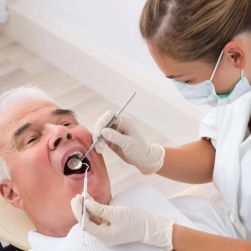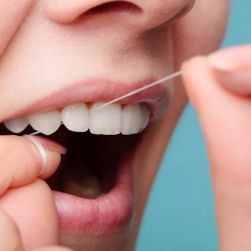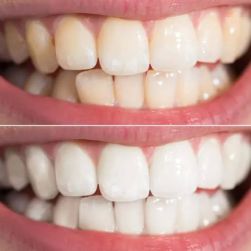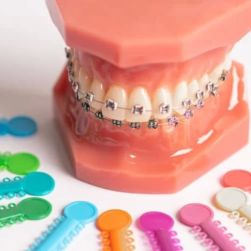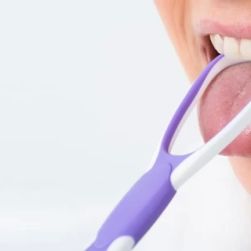Managing Oral Health Issues Caused by Medications: A Personal Guide
As someone who’s had to deal with the challenges of maintaining oral health while on various medications, I can confidently say that it’s not always easy. Medications can offer significant health benefits, but they often come with side effects that can impact your mouth and teeth. From dry mouth to increased risk of cavities, medications can cause oral health issues that may go unnoticed until they start to affect your daily life. If you’re currently taking medication and are worried about its effect on your oral health, you’re not alone. In this article, I’m going to share some of the most common oral health issues related to medications and provide practical tips for managing and preventing them.
1. The Impact of Medications on Oral Health
It might come as a surprise, but many common medications can affect the health of your teeth and gums. Some of these side effects can be mild, while others can be more severe. As someone who has experienced this firsthand, I know just how frustrating it can be to deal with these issues. Medications can cause problems such as dry mouth, gum disease, tooth decay, and even changes in taste. Understanding how different medications impact your oral health is the first step in managing these side effects effectively.
1.1 Dry Mouth from Medications
Dry mouth, also known as xerostomia, is one of the most common oral health issues related to medications. It occurs when the salivary glands don’t produce enough saliva, leaving the mouth feeling dry and uncomfortable. This can happen with medications such as antihistamines, decongestants, antidepressants, and blood pressure medications. As someone who has experienced dry mouth while on certain prescriptions, I can tell you that it can lead to a number of problems. Without enough saliva, your mouth becomes more vulnerable to plaque buildup, cavities, and gum disease.
1.2 Tooth Decay and Cavities
Tooth decay is another concern when it comes to medications. The lack of saliva in your mouth creates an environment where bacteria can thrive, leading to an increased risk of cavities. Certain medications, such as those used to treat high blood pressure, depression, and anxiety, are known to contribute to tooth decay. In my own experience, I’ve found that keeping a close eye on my dental health while taking these medications is crucial. Regular brushing, flossing, and dental check-ups become even more important when you’re on medication that affects your oral health.
1.3 Gum Disease and Medications
Gum disease is another common issue associated with medications. Some medications can cause your gums to swell, bleed, or become infected. This is particularly true for medications that affect your immune system, such as certain types of chemotherapy or medications used to treat epilepsy. In my case, I had to be extra vigilant about my gum health while taking certain medications. The earlier you catch gum disease, the easier it is to manage, so if you notice any swelling or bleeding, it’s important to see your dentist right away.
2. Strategies for Managing Oral Health While on Medications
Dealing with oral health issues caused by medications can be overwhelming, but the good news is that there are several effective strategies to help you manage these issues. As someone who has navigated this myself, I can offer some practical tips that have helped me maintain healthy teeth and gums despite the challenges posed by medications.
2.1 Increase Water Intake
One of the simplest and most effective ways to combat dry mouth is by drinking plenty of water. Staying hydrated is crucial for keeping your mouth moist and promoting saliva production. Whenever I notice my mouth becoming dry, I make it a habit to sip on water throughout the day. This simple change can make a big difference in preventing the negative effects of dry mouth, such as tooth decay and bad breath.
2.2 Use Saliva-Stimulating Products
If you’re dealing with dry mouth, you might want to try saliva-stimulating products such as mouth rinses, lozenges, or sprays. Many of these products are available over the counter and can help to lubricate your mouth. I’ve used saliva-stimulating mouth rinses, and they’ve helped me feel more comfortable during the day, especially when I’m in meetings or socializing. These products can help you manage dry mouth, but it’s also important to use them in conjunction with regular oral hygiene practices.
2.3 Maintain a Regular Oral Hygiene Routine
When you're on medication that affects your oral health, maintaining a regular and thorough oral hygiene routine becomes even more important. I make sure to brush my teeth at least twice a day with fluoride toothpaste, floss daily, and use mouthwash. This routine helps to remove plaque, prevent cavities, and keep my gums healthy. If you’re dealing with dry mouth, using toothpaste designed for sensitive teeth or one that contains xylitol can help soothe discomfort and keep your mouth feeling fresh.
2.4 Visit Your Dentist Regularly
Visiting your dentist regularly is essential, especially when you’re dealing with oral health issues related to medications. My dentist has been an invaluable resource when it comes to managing the side effects of my medications. Regular check-ups help catch any potential problems early, and your dentist can provide professional advice on how to protect your oral health while on medication. Whether it’s treating gum disease or addressing early signs of decay, a dentist’s guidance can make all the difference in preventing more serious issues down the line.
3. When to Seek Professional Help
If you notice any changes in your oral health while on medication, it’s important to seek professional help as soon as possible. Ignoring problems such as dry mouth, tooth decay, or gum disease can lead to more serious issues later on. If your medications are affecting your oral health, your dentist or healthcare provider can help you develop a plan to manage these side effects effectively. In some cases, your doctor may be able to adjust your medication or recommend alternatives that are less likely to affect your mouth.
If you’re currently dealing with oral health issues related to your medications, it’s crucial to take action sooner rather than later. Don’t hesitate to reach out to your dentist or healthcare provider for personalized advice. And for the best care and guidance, visit Dentistry Toothtruth to find the best clinics and services near you.

